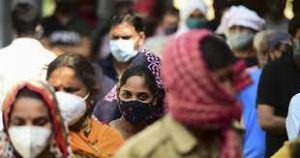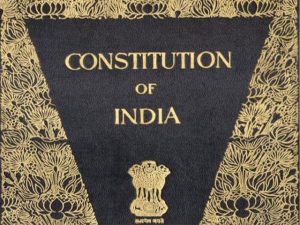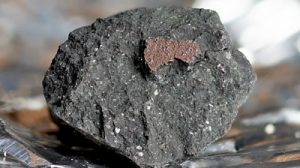Today Current Affairs: 17th May 2021 for UPSC IAS exams, State PSC exams, SSC CGL, State SSC, RRB, Railways, Banking Exam & IBPS, etc
Table of Contents
Doomsday Scrolling:

As Covid-19 has struck back to ravage our surroundings, most of us find ourselves continuously scrolling through pandemic-related news and social media feed — almost compulsively. That is what is called “doomscrolling” or “doomsday scrolling”.
- Doomsday Surfing refers to the tendency to continue to surf or scroll through bad news, even though that news is saddening or depressing.
- Many people are finding themselves continuously reading bad news about Covid-19 without being able to stop, even sacrificing their crucial sleep time or working hours in the process.
- while it may keep us updated and also help us mobilize resources, it also nudges us towards an exaggerated sense of gloom and doom.
- The term has been gaining momentum lately.
Zeolite Cargo Flights:

National carrier Air India has begun the first of its “zeolite cargo flights” with the government of India has commenced the process of importing zeolite from across the world for use in medical oxygen plants.
- The government has appointed the Defence Research and Development Organisation (DRDO) as the charterer for these consignments.
- Under the Prime Minister’s Citizen Assistance and Relief in Emergency Situations (PM CARES) Fund, the DRDO is to set up these medical oxygen plants.
Use of Zeolite in medical oxygen plants:
- The technology being developed by the DRDO uses the pressure swing adsorption process and molecular sieve zeolite in oxygen generation.
- Zeolites are used as adsorbent material.
- An oxygen concentrator uses Zeolites to adsorb atmospheric nitrogen and then vents out the nitrogen. This leaves oxygen gas remaining to be used for patients.
- In high pressure, the surface area of zeolites increases and thus is capable of adsorbing large quantities of nitrogen.
- Pressure swing adsorption (PSA) is a technology used to separate some gas species from a mixture of gases under pressure.
- PSA operates at near-ambient temperatures.
- Specific adsorbent materials (e.g., zeolites, activated carbon, molecular sieves, etc.) are used as a trap, preferentially adsorbing the target gas species at high pressure.
Zeolites are microporous, three dimensional crystalline solid of aluminium silicate. Zeolites have small openings of fixed size in them which allow small molecules to pass through them easily but larger molecules cannot pass through them; that is why they are sometimes called molecular sieve.
PM CARES::

A plea was filed in the Supreme Court seeking a direction to utilise the PM-CARES fund for immediate procurement of vaccines and establishment of oxygen plants, generators and their installation in 738 district hospitals across the country.
- The petition said the government should loosen its PM-CARES purse strings and help common people in accessing medical care and oxygen.
- These government hospitals are easily accessible at no cost to common people of every district in the country who are desperately seeking medical oxygen as basic life-saving support.
About PM-CARES:
- The Prime Minister’s Citizen Assistance and Relief in Emergency Situations (PM-CARES) Fund was set up to accept donations and provide relief during the Covid-19 pandemic, and other similar emergencies.
- PM-CARES Fund: PM-CARES was set up as a public charitable trust with the trust deed registered on March 27, 2020.
- It can avail donations from the foreign contribution and donations to fund can also avail 100% tax exemption.
- Prime Minister is the ex-officio Chairman of the PM CARES Fund and Minister of Defence, Minister of Home Affairs and Minister of Finance, Government of India are ex-officio Trustees of the Fund.
SWAMIH Fund:

The Government of India’s Special Window for Affordable & Mid-Income Housing (SWAMIH) completed its first residential project.
- The residential project – Rivali Park, located in suburban Mumbai, was the first housing project in India to have received funding under the SWAMIH Fund.
- SWAMIH Fund: This is a government-backed fund that was set up as a Category-II AIF (Alternate Investment Fund) debt fund registered with SEBI, launched in 2019.
- SWAMIH Investment Fund was formed to complete construction of stalled, RERA-registered affordable and mid-income category housing projects which are stuck due to paucity of funds.
- The Investment Manager of the Fund is SBICAP Ventures, a wholly-owned subsidiary of SBI Capital Markets, which in turn is a wholly-owned subsidiary of the State Bank of India.
- The Sponsor of the Fund is the Secretary, Department of Economic Affairs, Ministry of Finance, on behalf of the Government of India.
Alternative Investment Fund (AIF):
- AIF means any fund established or incorporated in India which is a privately pooled investment vehicle that collects funds from sophisticated investors, whether Indian or foreign, for investing it in accordance with a defined investment policy for the benefit of its investors.
- Regulation 2(1)(b) of Securities and Exchange Board of India (SEBI) Regulations (AIFs), 2012 lays down the definition of AIFs.
- Through a company, or a Limited Liability Partnership (LLP), an Alternative Investment Fund can be established.
- AIF does not include funds covered under the SEBI (Mutual Funds) Regulations, 1996, SEBI (Collective Investment Schemes) Regulations, 1999, or any other regulations of the Board to regulate fund management activities.
- Other exemptions include family trusts, employee welfare trusts, or gratuity trusts.
India Continues To label Itself As a Country With No Community Transmission:

As per the latest report by the World Health Organisation (WHO), India continues to label itself as a country with no Community Transmission (CT) since the beginning of the Covid-19 pandemic.
- Countries such as the United States, Brazil, United Kingdom, France have all labeled themselves as being in the ‘community transmission’ stage whereas Italy and Russia do not label themselves as being in ‘community transmission’.
Community Transmission (CT):
- It is one of the stages of the Pandemic.
- Broadly, CT is when new cases in the last 14 days can’t be traced to those who have an international travel history when cases can’t be linked to specific clusters.
- CT classification is now divided into four levels, from low incidence (CT1) to very high incidence (CT4).
Four Stages of a Pandemic:
- Stage 1-Imported Transmission:
- It is reported among the travellers entering the country via the borders and airports. This can be controlled through thermal screening and quarantine.
- Stage 2-Local Transmission:
- It is defined as the transmission through direct contact with an infected person within the country.
- Stage 3-Community Transmission:
- It signifies that a virus is circulating in the community and can affect people with no history of travel to affected areas or of contact with an infected person.
- Stage 4- Epidemic:
- Stage 4 is when the disease actually becomes an epidemic in a country, such as it (Covid-19) was in China, with large numbers of infections and a growing number of deaths with no end in sight. It is then considered to be endemic or now prevalent in the region.
India’s Current Classification:
- India opts for the lower, less serious classification called ‘cluster of cases’.
- It says ‘Cases detected in the past 14 days are predominantly limited to well-defined clusters that are not directly linked to imported cases.
- It is assumed that there are a number of unidentified cases in the area. This implies a low risk of infection to others in the wider community if exposure to these clusters is avoided.
- India’s refusal to describe itself as being in community transmission shows an “ostrich in the sand” approach since being in CT — far from being stigmatic or an indicator of failure shows how authorities addressed a pandemic.
- If cases were still a cluster, it would mean that the government ought to be prioritizing testing, contact tracing and isolating to prevent further infection spread. While on the other hand being in CT, it meant prioritising treatment and observing advisories to stay protected.
- Community transmission means that the health system has now lost track of the trajectory of the virus and infections are happening without the source of the infection being known.
- Once the government accepts community transmission, the pandemic control strategy will move on to the next phase, which is the mitigation phase, when the focus will be to ensure that only those people get to the hospital who really need medical care.
- This would ensure lives are saved. Keeping track of infections or containing them would then no longer be the primary strategy
Cultural Exchange Programme:

The Minister of State for Culture discussed various issues under the Cultural Exchange Programme with his Mongolian counterpart.
Highlights of the Meet:
- Strengthening the strategic partnership- established in 2015.
- The Cultural Exchange Program between India and Mongolia stands renewed until 2023.
- 10 dedicated ICCR scholarships for studying ‘Tibetan Buddhism’ have been allocated for Mongolians to study in specialized institutes of CIBS, Leh and CUTS, Varanasi, starting from 2020-2021.
- The Indian Council for Cultural Relations (ICCR) is an autonomous organisation of the Government of India, involved in India’s external cultural relations (cultural diplomacy), through cultural exchange with other countries and their peoples.
- Tibetan Buddhism combines the essential teachings of Mahayana Buddhism with Tantric and Shamanic, and material from an ancient Tibetan religion called Bon.
- India reiterated its commitment for digitization of Buddhist manuscripts in Gandan monastery and would consider Mongolia’s request for assistance in setting up a museum-cum-library there.
- The Ministry of Culture is likely to complete reprinting of about 100 sets of sacred Mongolian Kanjur by 2022 for distribution in the main centers of Buddhism in Mongolia.
- Mongolian Kanjur is a Buddhist canonical text in 108 volumes and is considered to be the most important religious text in Mongolia.
- It has been translated from Tibetan and is written in classical mongolian.
- In the Mongolian language ‘Kanjur’ means ‘Concise Orders’- the words of Lord Buddha in particular.
- Highlighted steps taken to facilitate the visa and travel of Buddhist monks from Mongolia within India.
Article 311:

Suspended police officer Sachin Waze, arrested by the National Investigation Agency (NIA) in connection with the Mukesh Ambani terror scare case, was dismissed from service by Mumbai Police Commissioner under Article 311 (2) (b) of the Indian Constitution without a departmental enquiry.
- Article 311 says that no government employee either of an all India service or a state government shall be dismissed or removed by an authority subordinate to the owner that appointed him/her.
- Section 2 of the article says that no civil servant shall be dismissed or removed or reduced in rank except after an inquiry in which s/he has been informed of the charges and given a reasonable opportunity of being heard in respect of those charges.
- In a departmental enquiry, after an enquiry officer is appointed, the civil servant is given a formal charge sheet of the charges.
- The civil servant can represent himself/herself or choose to have a lawyer.
- Witnesses can be called during the departmental enquiry following which the enquiry officer can prepare a report and submit it to the government for further action.
- As per Article 311 subclause 2 provision a, if a government employee is convicted in a criminal case, he can be dismissed without DE.
- Apart from this, under 311 (2) (c), a government employee can be dismissed when the President or the Governor, as the case may be, is satisfied that in the interest of the security of state it is not expedient to hold such an enquiry, the employee can be dismissed without DE.
Helmand:

Fighting between the Taliban and Afghan government forces resumed in the restive southern province of Helmand, ending a three-day ceasefire agreed by the warring sides to mark the Id-ul-Fitr holiday.
- Helmand is also known as Hillmand or Helman and, in ancient times, as Hermand and Hethumand.
- It is one of the 34 provinces of Afghanistan, in the south of the country.
- It is the largest province by area. The province contains 13 districts.
- Lashkargah serves as the provincial capital. The Helmand River flows through the mainly desert region of the province, providing water used for irrigation. The Kajaki Dam, which is one of Afghanistan’s major reservoirs, is located in the Kajaki district.
- Helmand is believed to be one of the world’s largest opium-producing regions, responsible for around 42% of the world’s total production.
- Since the 2001 War in Afghanistan, Helmand Province has been a hotbed of insurgent activities. It has been considered to be Afghanistan’s “most dangerous” province.
Winchcombe meteorite:

A piece of the Winchcombe meteorite that touched down in the town of Winchcombe in Gloucestershire in the UK in February 2021 will be displayed at the National History Museum.
- Meteoroids are objects in space that range in size from dust grains to small asteroids.
- But when meteoroids enter the Earth’s atmosphere they are called meteors.
- But if a meteoroid enters the Earth’s atmosphere and hits the ground, it is called a meteorite.
- The piece of meteorite, which is a 103-gram fragment of black rock resembling coal, was found in a field by one Mira Ihasz and a team from the University of Glasgow.
- The meteorite landed in the driveway of a house located in Gloucestershire in February and considered “astonishingly rare”.
- It dates back to the birth of the solar system nearly 4.5 billion years ago and therefore examining it may offer scientists clues about the beginning of the solar system and maybe even the Earth.
- Winchcombe is also significant because it is the meteorite to have fallen and recovered from the UK in about 30 years.
- Further, this type of meteorite is known as a carbonaceous meteorite and out of about 65,000 known meteorite types, only about 1,000 are of this particular type.




